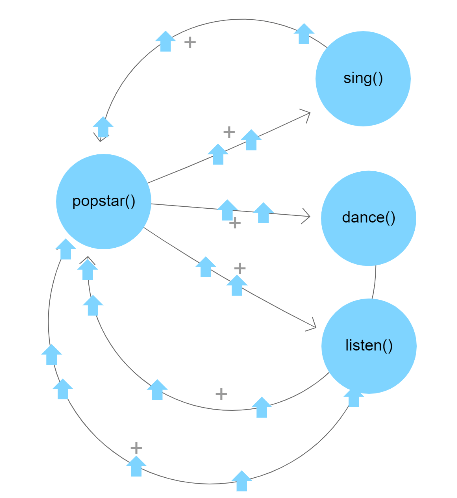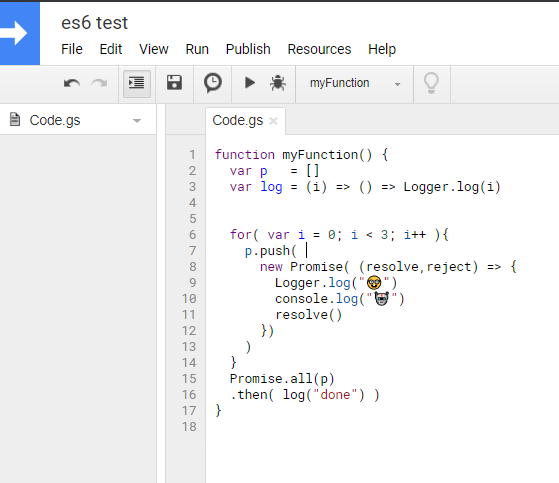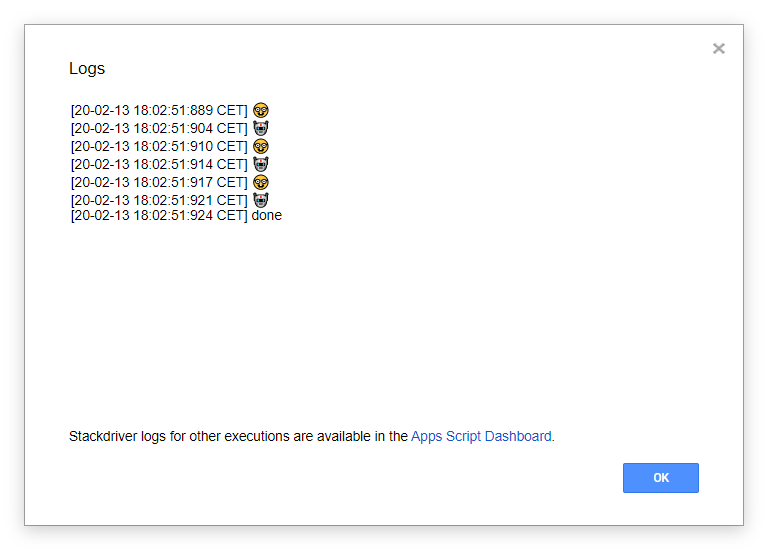
Async support!
Good times: we can combine both synchronous and asynchronous now!
Appscript’s first runtime is synchronous, then what is async(hronous)?
Well, just imagine doing several things at once:

With asynchronous, things happen at the same time (parallel).
So appscript was originally sync?
Yes, in Appscript’s original runtime (ES5), things only happened after each other (synchronous):

TIP: Remember, synchronous code is easy to write and reason about. Therefore, a good rule of thumb is: “write synchronous code, refactor to async (when needed)".
Test async quotas?
How is async going to affect the appscript-usage quotas?
Running
Promise.all()on an array with 100000 elements will definately raise some eyebrows at Google ☠
Time for a quick test:

Let’s see how appscript reacts to parallel execution (Promise.all):

Nice! In the console (CTRL+ENTER) it looks like everything worked ❤ !
I did notice that, with the original ES5 runtime, Logger.log-messages appear slightly faster in the log-window.
What’s exciting is that it just feels like running something on Node.js…without the hassle 🤓
Functions, functions..and functions
There are so many new ways to define functions now:
function normalFunction() {}
async function asyncFunction() {}
function* generatorFunction() {}
var varFunction = function() {}
let letFunction = function() {}
const constFunction = function() {}
var namedVarFunction = function alternateNameVarFunction() {}
let namedLetFunction = function alternateNameLetFunction() {}
const namedConstFunction = function alternateNameConstFunction() {}
var varAsyncFunction = async function() {}
let letAsyncFunction = async function() {}
const constAsyncFunction = async function() {}
var namedVarAsyncFunction = async function alternateNameVarAsyncFunction() {}
let namedLetAsyncFunction = async function alternateNameLetAsyncFunction() {}
const namedConstAsyncFunction = async function alternateNameConstAsyncFunction() {}
var varGeneratorFunction = function*() {}
let letGeneratorFunction = function*() {}
const constGeneratorFunction = function*() {}
var namedVarGeneratorFunction = function* alternateNameVarGeneratorFunction() {}
let namedLetGeneratorFunction = function* alternateNameLetGeneratorFunction() {}
const namedConstGeneratorFunction = function* alternateNameConstGeneratorFunction() {}
var varLambda = () => {}
let letLambda = () => {}
const constLambda = () => {}
var varAsyncLambda = async () => {}
let letAsyncLambda = async () => {}
const constAsyncLambda = async () => {}
Again, the
asyncsupport can be very useful. It creates lots of potential for improving the speed of old appscript-projects.
Improved logging
This is great news, now both console.log and Logger.log work with the logging screen (CTRL+ENTER).
Ohter bells and whistles
Most other things are good news too:
letandconst- arrow functions
() => classclasses- Destructuring assignments
{foo,bar} = data - template literals
hello ${name} - default parameters
function(foo=1,bar=2){..} - Multi-line strings
All these are not essential to write useful appscripts.
However, imagine how this could reduce the codesize of your next appscript project. Good news! ❤
Legacy projects
Well, I don’t expect much side-effects when switching runtimes..but don’t take my word for it! 😅
Here are some ideas:
This website will allow you copy/paste your old runtime code, and converts it into new runtime code

Another tip: don’t feel obliged to use the new features.
In most cases, there’s nothing wrong with writing simple code without all these bells and whistles ❤
Original article
See the original article of Google here